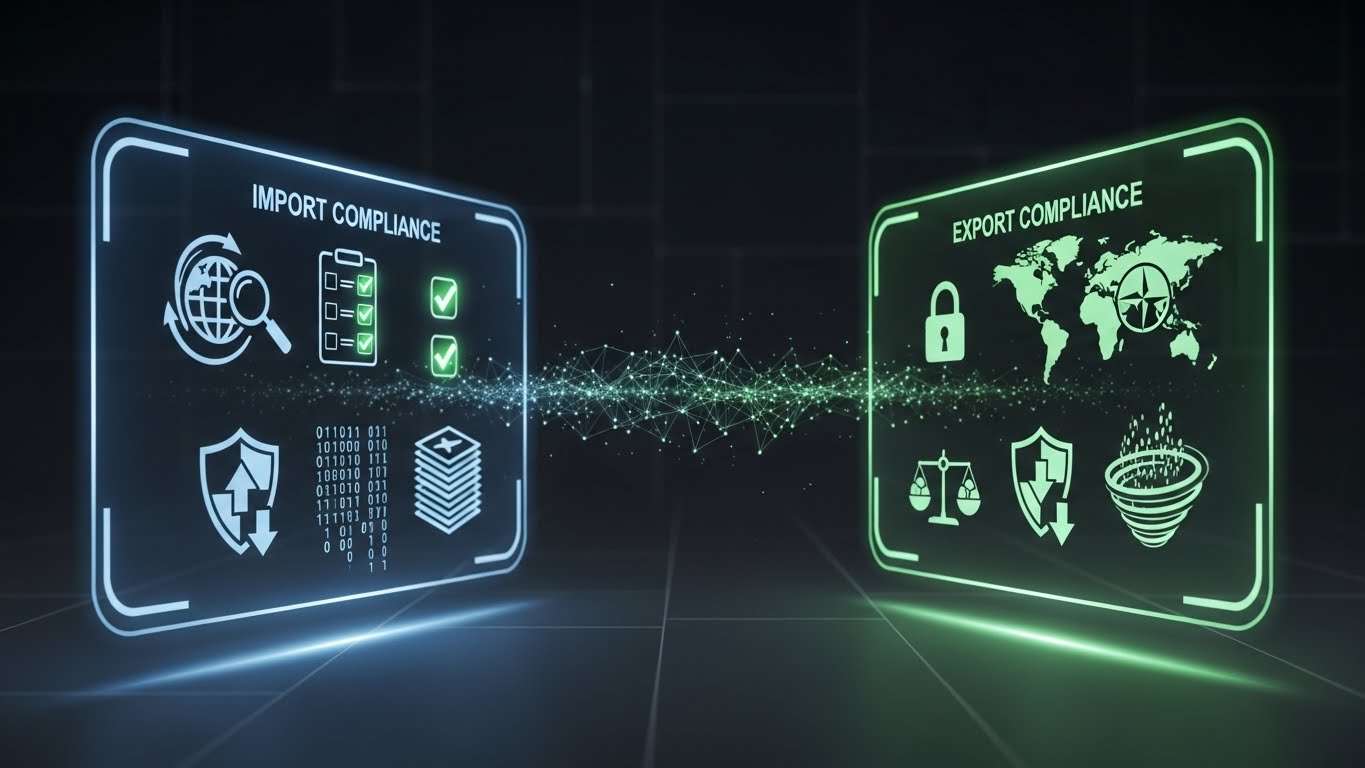
What is Trade Compliance and Why it is Important?
Trade Compliance
As a business owner, you’re always looking for ways to minimize risk and maximize efficiency. Trade compliance is crucial in achieving both. Ensuring your shipments meet all legal requirements not only keeps your business on the right side of the law but also prevents costly delays and fines. So, why is it so important? And how can it impact your bottom line?
In this article, we’ll take a closer look at the role of import-export laws, why they should be a top priority for your business, and how they can streamline your global operations. Let’s dive in.

What is Trade Compliance?
Trade compliance is the process of following the rules and regulations when moving goods between countries. Each country has its laws governing what can be imported or exported. So, when trading goods internationally, it ensures that everything you’re sending or receiving follows these laws.
This includes both import-side regulatory responsibility, where goods must comply with the destination country’s rules—often managed through an Importer of Record (IOR)—and export-side compliance obligations, which ensure shipments meet the legal requirements of the exporting country under an Exporter of Record (EOR) framework.
Why Trade Compliance is important?
Export and import compliance is crucial for fair and consistent global trade. It ensures that goods meet the same quality, ethical, and economic standards, protecting both suppliers and customers. Understanding trade regulations is vital for businesses expanding internationally and staying compliant with all laws and regulations.
Here’s why it’s important:
Fairness and Consistency
It ensures that every business follows the same set of rules when trading, so no one has an unfair advantage.
Smooth Operations
It helps ensure that goods shipped between countries follow the right processes, avoiding delays or mistakes.
Reduces Risks
When businesses follow trade rules, they avoid fines, penalties, and shipping delays and also steer clear of legal issues.
Product and Quality Standards
Every country has rules to ensure products are safe and meet certain standards. It helps companies make sure their products are up to those standards.
Protects Suppliers and Consumers
By sticking to trade rules, businesses ensure that both their suppliers (the companies they buy from) and their customers are treated fairly and safely.
What Does Trade Compliance Involve?
Import-export compliance covers many aspects of trading, from legal to operational factors.
To simplify, we can break it down into eight key areas, each playing a crucial role in successful global trade. They are:
Tariff Classification
Tariff classification ensures that goods are assigned the correct customs codes used to calculate duties and taxes. This step—often guided by a harmonized system–based product coding—is critical for accurate tax assessment and smooth border processing.
Origin Preference
The country of origin determines eligibility for special tariffs or exemptions under trade agreements. Knowing your product’s origin can significantly reduce costs and improve your trade benefits.
Incoterms
Define the roles and responsibilities of buyers and sellers throughout the shipping process. A clear understanding of international shipping terms and responsibilities helps clarify who manages costs, risk, and obligations across the logistics chain.
Import Licensing
Import licensing is required for specific goods that need government approval before entering a country. Ensuring you have the proper licenses can prevent costly delays at customs.
Export Controls
Export controls regulate the shipment of certain goods due to national security, foreign policy, or trade agreements. Compliance with these controls is essential to avoid legal violations.
Customs Management
Effective customs management involves preparing the necessary paperwork and meeting regulatory requirements as goods move across borders. Proper handling of customs documentation and clearance requirements helps prevent delays and ensures full legal compliance.
Screening
Screening involves checking products for compliance with regulatory standards and ensuring that goods are not restricted or unsafe. This step protects your business from potential fines or penalties.
Fair Valuation of Products
Accurately valuing goods is essential for customs procedures. It ensures that products are correctly priced for duties and taxes, preventing misvaluation issues that could lead to fines or delays.
FAQs
International trade compliance refers to the adherence to regulations and laws governing the import and export of goods across national borders.
This includes ensuring that businesses comply with the specific requirements set by both the exporting and importing countries. The goal is to facilitate smooth and lawful cross-border transactions while avoiding legal issues, penalties, and disruptions.
Businesses engaging in international trade must navigate diverse regulations, customs procedures, and trade practices to ensure ethical and responsible operations.
Global trade compliance is a comprehensive approach to complying with regulations and laws governing the movement of goods across international borders. It involves strategically and systematically ensuring that businesses comply with a myriad of trade requirements worldwide.
This includes understanding and adhering to diverse regulations, customs procedures, and trade practices worldwide. Unlike domestic trade compliance, global trade compliance requires a broader perspective, intricate knowledge of international laws, and the ability to navigate the complexities of multiple countries.
Infringements of regulatory laws vary by country and can lead to different consequences. Penalties often include monetary fines, but in severe cases, such as submitting false information, incarceration may occur. Sanctions aim to counteract unjust benefits and financially impact non-compliant organizations, with hefty fines serving as a deterrent.
Additionally, breaches may result in temporary export bans or reputational damage, which can be more detrimental than monetary penalties.
We Recommend To Read: Essential Tips for New Importers and Exporters
Here are some key pointers for any business:
Conduct daily risk evaluations by trained staff.
Ensure staff have continuous access to the internal enforcement department’s documentation.
Provide ongoing compliance training.
Continuously work on enhancing enforcement measures.
Implement and maintain an enforcement program or regulation before and after transactions, ensuring accessibility to all employees.
Maintain professional record-keeping practices.
Regularly perform internal and external compliance audits.
Offer a system for employees to anonymously report violations or potential violations.
Written by Ahmed Abo El-Enein
Ahmed Abo El-Enein is a logistics and trade compliance expert with years of experience across global supply chains. He produces clear, practical content that helps businesses navigate customs regulations, manage cross-border challenges, and stay aligned with international trade requirements.
